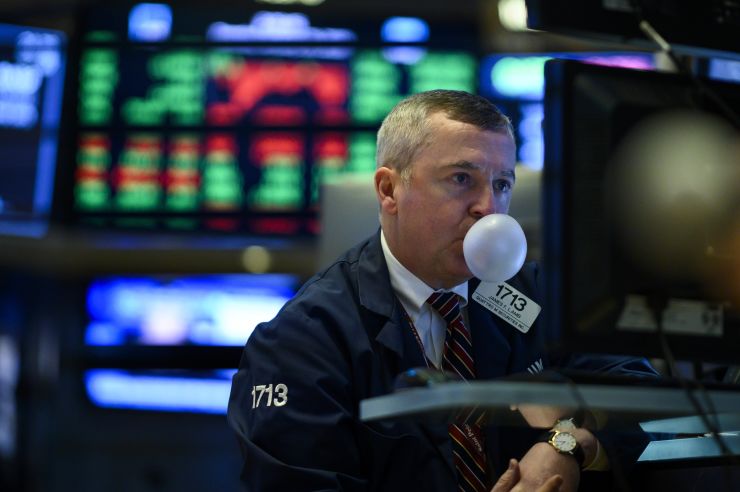
Stocks slipped on Thursday as stronger-than-expected economic data were offset by fruitless talks between President Donald Trump and North Korean leader Kim Jong Un.
The Dow Jones Industrial Average fell 69.16 points to close at 25,916 as UnitedHealth shaved more than 50 points off the blue-chip index. The S&P 500 dropped nearly 0.3 percent to finish the session at 2,784.49, while the Nasdaq Composite also lost about 0.3 percent to close at 7,532.53. Facebook, Apple and Netflix all fell more than 0.5 percent.
The U.S. economy grew at an annualized rate of 2.6 percent in the fourth quarter 2018, according to the government. Economists polled by Dow Jones expected the economy to grow at a pace of 2.2 percent.
“This report showed the economy is slowing, but not enough to increase investor angst,” said Chris Gaffney, president of world markets at TIAA Bank. GDP data would “have given a bigger boost to equities and other risk assets if not for the negative news coming out of Vietnam,” said Gaffney, referring to the Trump-Kim summit ending abruptly. “This, along with the reemergence of hostilities between India and Pakistan, has increased the geopolitical risks.”
U.S. and North Korean officials failed to agree on steps toward North Korea taking down its nuclear armament. Earlier, Trump and Kim — seated together at a conference table — appeared confident about the prospect of improving diplomatic relations.
The iShares MSCI South Korea ETF (EWY), which tracks South Korean shares, fell 1.9 percent. Investors were closely watching the summit as it could potentially impact trade negotiations between China and the U.S.
White House economic advisor Larry Kudlow told CNBC on Thursday both the U.S. and China are making “fantastic ” progress in their negotiations. “I think we’re headed for a remarkable, historic deal.”
Treasury Secretary Steven Mnuchin said in a separate CNBC interview: “We have made a lot of progress, ” but added that a deal “is not yet done.”
Their comments come after U.S. Trade Representative Robert Lighthizer testified in front of House members that China needed to do more than just buy more U.S. goods for the two countries to strike a permanent trade deal. But Lighthizer said after the testimony, according to The Wall Street Journal, that formal steps would be taken to abandon plans of raising tariffs on Chinese goods.
Stocks are off to a hot start for 2019 as worries over U.S.-China trade relations and fears of tighter monetary policy have decreased. The Dow and S&P 500 are both up more than 11 percent this year, while the Nasdaq is up more than 13.5 percent.
Thomas Lee, founder and head of research at Fundstrat Global Advisors, said stocks should build on these gains this year.
“Investors will become increasingly bullish as we move through the year — hence, we expect ‘buy the dip’ will support stocks,” Lee said in a note to clients. “As we have moved through the year, more investors are recognizing that downward revisions in ‘E’ matter much less than P/E.”
Shares of HP Inc. dropped 17.2 percent after the company posted quarterly revenue that missed expectations. HP Inc. also reported earnings per share that matched estimates.
